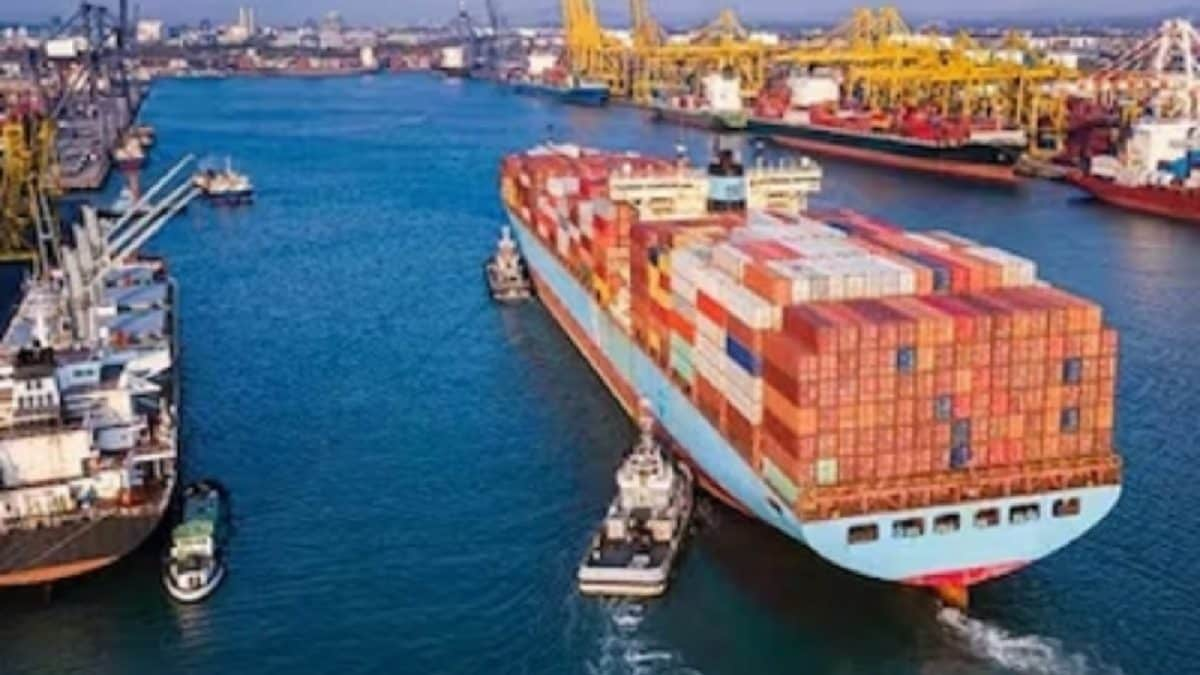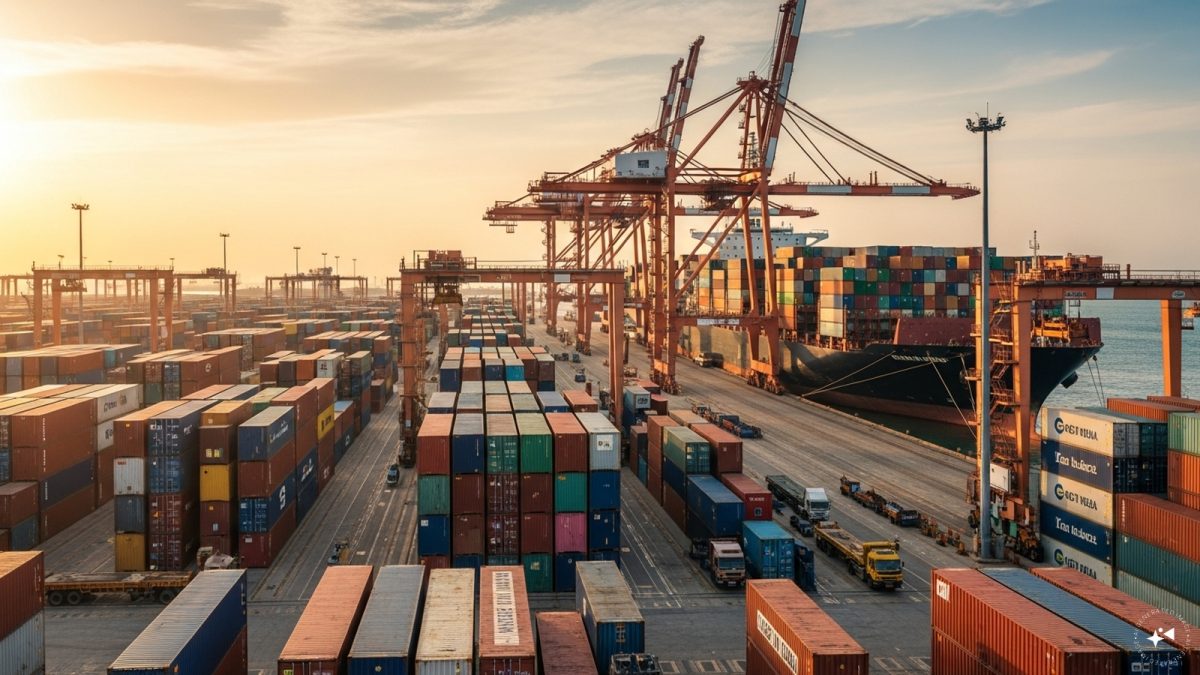Business
India’s services, manufacturing’s export potential untapped; FDI a concern: World Bank South Asia chief economist – The Times of India

India’s services and manufacturing exports hold significant untapped potential for overseas investors, according to Franziska Ohnsorge, Chief Economist for South Asia at the World Bank.“I draw attention to two opportunities for investment. One is in services exports and the other is in goods exports because it’s the export industry rather than tradable industries that foreign investors tend to be interested in,” Ohnsorge told ANI on the sidelines of the Kautilya Economic Forum in New Delhi. She added that India’s strong government readiness for AI further strengthens this potential.Ohnsorge pointed to the rapid expansion of computer services exports, which surged 30 per cent following the launch of ChatGPT in November 2022, compared to a 10 per cent rise in overall services exports. “Computer services exports have been soaring relative to average services exports since the introduction of ChatGPT in November 2022. So computer services exports have grown by 30 per cent, but overall services exports only by 10 per cent. There seem to be real opportunities in that sector,” she said.On manufacturing, she underlined constraints posed by limited trade agreements and high tariffs on intermediate goods. “India currently has much fewer trade agreements than other emerging markets and developing economies and has higher tariffs on intermediate goods and this is something that holds back its manufacturing sector. So I’ll show that if these trade agreements that are currently under negotiation materialise, it would increase the market access of India’s manufacturing industry by multiples,” she noted.India is currently negotiating free trade agreements (FTAs) with partners including the UK, EU, Oman, Canada, and members of the Indo-Pacific Economic Framework (IPEF). Bilateral trade discussions with the US are also ongoing.On investment trends, she observed that private investment growth in India has slowed compared to pre-pandemic levels, but remains stronger than in most emerging markets. “Private investment growth has slowed in India from pre-pandemic rates to post-pandemic rates. And that is the opposite of what has happened in other emerging markets and developing economies. But even with this slowdown, private investment growth in India is still higher than the average for other emerging markets and developing economies. So by international standards, private investment growth is not weak. By India’s standards, it’s weak,” she explained.However, she flagged foreign direct investment (FDI) as a key area of concern. “What is weak by international standards is FDI. The FDI to GDP ratio in India is in the bottom quartile. Net FDI. GDP ratio is in the bottom quartile of emerging markets and developing economies,” she added.
Business
India’s GDP grows at 7.8% in Q3 FY 2025-26: Top highlights from first data under new series – The Times of India

India’s real GDP grew at a robust 7.8% in the third quarter of FY 2025-26 according to data released by the Ministry of Statistics and Programme Implementation (MoSPI). This is the first GDP data that has been released by MoSPI under the new series which revises the base year for calculation purposes.India’s economy grew at 7.8% in the October–December quarter of 2025-26, compared with 7.4% in the corresponding period a year earlier, according to the revised national accounts series.MoSPI on Friday released the updated annual and quarterly national accounts estimates based on the 2022-23 base year, replacing the earlier series that used 2011-12 as the reference year.
India’s Q3 FY 2025-26 GDP data: Key Highlights
1. Under the revised series, GDP growth for the current financial year is projected at 7.6 per cent, slightly higher than the 7.4 per cent estimate provided in the ministry’s advance projections issued in January. Nominal GDP is projected to increase by 8.6 per cent in FY 2025-26. 2. The growth estimate for the July–September quarter of 2025-26 has been revised upward to 8.4 per cent from the earlier 8.2 per cent. 3. In contrast, the estimate for the April–June quarter has been lowered to 6.7 per cent from the previously reported 7.8 per cent.4. The overall economic performance in FY 2025-26 has been supported mainly by strong real growth recorded in the second quarter at 8.4 per cent and in the third quarter at 7.8 per cent.5. The economy has maintained steady growth momentum, with real GDP rising by 7.2 per cent in FY 2023-24 and 7.1 per cent in FY 2024-25.6. Nominal GDP growth stood at 11.0 per cent in FY 2023-24 and 9.7 per cent in FY 2024-25.7. Following the base year revision, the manufacturing sector has emerged as a key contributor to the economy’s resilience over the past three financial years, seeing double-digit growth in FY 2023-24 and again in FY 2025-26.8. Growth in both the secondary and tertiary sectors has also strengthened economic performance, with each recording growth of more than 9 per cent in FY 2025-26.9. Within the services segment, the “Trade, Repair, Hotels, Transport, Communication and Services related to Broadcasting and Storage” category registered growth of 10.1 per cent at constant prices in FY 2025-26.10. On the expenditure side, Private Final Consumption Expenditure and Gross Fixed Capital Formation each recorded growth exceeding 7 per cent during FY 2025-26.
Business
Video: The Web of Companies Owned by Elon Musk

new video loaded: The Web of Companies Owned by Elon Musk

By Kirsten Grind, Melanie Bencosme, James Surdam and Sean Havey
February 27, 2026
Business
Gold price prediction: What’s the gold rate outlook for February 27, 2026 & should you buy on dips? – The Times of India

Gold price prediction today: Gold rates are showing a positive bias, says Jateen Trivedi, VP Research Analyst – Commodity and Currency, LKP Securities. Here is his detailed analysis on the intraday trading outlook:Gold April futures on MCX are trading near ₹1,60,100 after witnessing a sharp rebound from intraday lows around ₹1,58,500. The recovery indicates short-covering and fresh buying interest emerging near lower levels. The short-term structure now suggests a continuation bounce, provided key support holds.
Gold Technical Setup:
EMA 8 & EMA 21:Price has reclaimed the short-term EMA cluster after a strong rebound. The 8 EMA is turning upward and attempting to cross above the 21 EMA, indicating improving intraday momentum. Sustaining above ₹1,60,000 strengthens the bullish setup.Price Structure:The chart reflects a V-shaped recovery from lower levels with higher lows forming on the 30-minute timeframe. This suggests that buyers are defending dips aggressively.RSI Indicator:RSI is near 57, comfortably above the neutral 50 level, signaling strengthening bullish momentum without entering overbought territory.MACD:MACD has turned positive with a bullish crossover and expanding green histogram bars, confirming recovery momentum.Volume & Open Interest:Rising price with stabilizing open interest suggests short-covering support, adding strength to the rebound.
Gold Intraday Trading View:
• Strategy: Buy on dips • Entry Level: ₹1,60,100 • Stop-Loss: Below ₹1,59,400 • Targets: ₹1,60,600 and ₹1,61,000 • Bias: Bullish above ₹1,60,000; weakness resumes only below ₹1,59,400.Gold’s intraday technical structure has shifted positive after reclaiming key resistance levels and forming a strong recovery pattern. Momentum indicators support further upside extension toward ₹1,60,600 and ₹1,61,000. Traders are advised to initiate long positions near ₹1,60,100, maintain a strict stop-loss below ₹1,59,400, and look for continuation gains during the session.Bias: Buy on Dips | Support: ₹1,60,100 | Target: ₹1,60,600 / ₹1,61,000(Disclaimer: Recommendations and views on the stock market, other asset classes or personal finance management tips given by experts are their own. These opinions do not represent the views of The Times of India)
-

 Tech1 week ago
Tech1 week agoA $10K Bounty Awaits Anyone Who Can Hack Ring Cameras to Stop Sharing Data With Amazon
-

 Business7 days ago
Business7 days agoUS Top Court Blocks Trump’s Tariff Orders: Does It Mean Zero Duties For Indian Goods?
-

 Fashion7 days ago
Fashion7 days agoICE cotton ticks higher on crude oil rally
-

 Entertainment7 days ago
Entertainment7 days agoThe White Lotus” creator Mike White reflects on his time on “Survivor
-

 Tech1 week ago
Tech1 week agoDonald Trump Jr.’s Private DC Club Has Mysterious Ties to an Ex-Cop With a Controversial Past
-

 Sports7 days ago
Sports7 days agoBrett Favre blasts NFL for no longer appealing to ‘true’ fans: ‘There’s been a slight shift’
-

 Business6 days ago
Business6 days agoEye-popping rise in one year: Betting on just gold and silver for long-term wealth creation? Think again! – The Times of India
-

 Fashion1 week ago
Fashion1 week agoIndia’s $28 bn reset: How 5 trade deals will reprice its T&A exports











